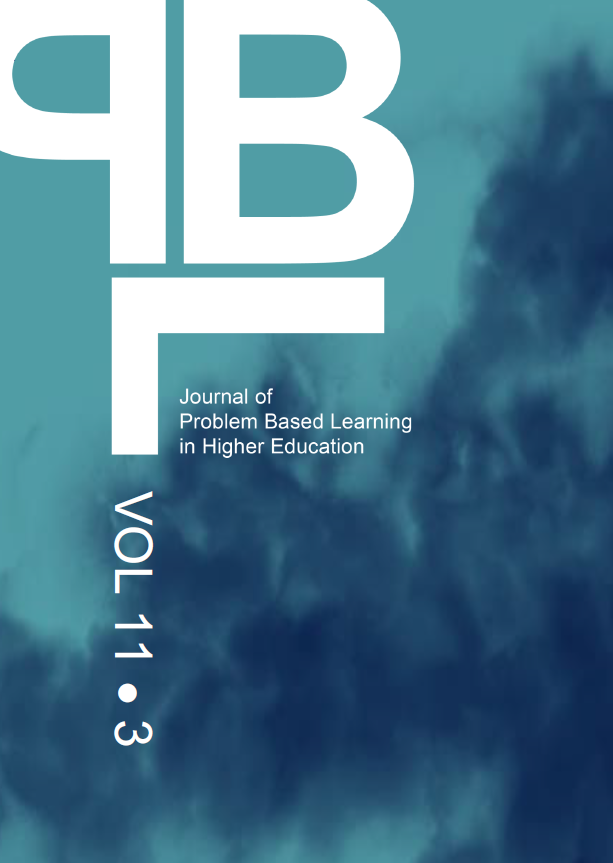Abstract
Ergonomics courses typically cover a range of topics related to the design and organization of workplaces to optimize human performance and well-being while minimizing injury risk and discomfort. This study introduces the PBL application steps to attract attention to the importance of noise not only in workplaces but also in daily life. The driving question is determined as “How can we assess and minimize the perceived daily noise exposure of people to sustain hearing health?”. Then, the students are asked to evaluate the PBL activities at the end of the term. Among the students who completed all activities, 60% strongly agreed, 32% agreed that PBL contributed to the understanding of the subject, and only 8% stated that PBL didn’t make a significant contribution when learning the topic of concern. The PBL framework developed for “noise” has the potential to be enhanced and adapted for other topics in this course.
References
Beddoes, K. D., Jesiek, B. K., & Borrego, M. (2010). Identifying Opportunities for Collaborations in International Engineering Education Research on Problem-and Project-Based Learning. Interdisciplinary Journal of Problem-Based Learning, 4(2). https://doi.org/10.7771/1541-5015.1142
Blumenfeld, P.C., Soloway, E., Marx, R.W., Krajcik, J.S., Guzdial, M., & Palinscar, A. (1991). Motivating project-based learning: Sustaining the doing, supporting the learning. Educational Psychologist, 26(3-4), 369-398. https://doi.org/10.1080/00461520.1991.9653139
Brundiers, K., & Wiek, A. (2013). Do we teach what we preach? An international comparison of problem- and project-based learning courses in sustainability. Sustainability, 5(4), 1725-1746. https://doi.org/10.3390/su5041725
Boisadan, A., Viazzi, C., Bourgognon, C., Blandin, B., & Buisine, S. (2022). Distance project-based learning during lockdown and learner’s motivation, The Interdisciplinary Journal of Problem-based Learning, 16(1). https://doi.org/10.14434/ijpbl.v16i1.32580
Condliffe, B., Quint, J., Visher, M.G., Bangser, M.R., Drohojowska, S., Saco, L., & Nelson, E. (2017). Project-Based Learning A Literature Review, MDRC, NY, USA. https://www.mdrc.org/sites/default/files/Project-Based_Learning-LitRev_Final.pdf
Hallinger, P. (2021). Tracking the Evolution of the Knowledge Base on Problem-based Learning: A Bibliometric Review, 1972-2019, The Interdisciplinary Journal of Problem-based Learning, 15(1). https://doi.org/10.14434/ijpbl.v15i1.28984
Gomez-del Rio, T. & Rodriguez, J. (2022). Design and assessment of a project-based learning in a laboratory for integrating knowledge and improving engineering design skills. Education for Chemical Engineers, 40, 17-28. https://doi.org/10.1016/j.ece.2022.04.002
González, R. & Batanero, F. (2016). A review of Problem-Based Learning applied to Engineering. Education Research Journal, 3(1), 14-31. https://core.ac.uk/download/pdf/51403887.pdf
Guo, P., Saab, N., Post, L.S., & Admiraal, W. (2020). A review of project-based learning in higher education: Student outcomes and measures. International Journal of Educational Research, 102, 101586. https://doi.org/10.1016/j.ijer.2020.101586
Krajcik, J.S., & Shin, N. (2014). Project-based learning. In R. K. Sawyer (Eds.). The Cambridge handbook of the learning sciences (2nd ed., pp. 275–297). Cambridge University Press. https://doi.org/10.1017/CBO9781139519526.018
Potvin, A.S., Miller, E.A., Kuck, R., Berland, L.K., Boardman, A.G., Kavanagh, S.S., Clark T.L., & Cheng, B.H. (2022). Mapping Enabling Conditions for High-Quality PBL: A Collaboratory Approach, Education Science, 12. https://doi.org/10.3390/educsci12030222
Rehmat A.P., Hartley K. (2020). Building Engineering Awareness: Problem-Based Learning Approach for STEM Integration, The Interdisciplinary Journal of Problem-based Learning, 14(1). https://doi.org/10.14434/ijpbl.v14i1.28636
URL.1. http://www.eskisehirbilimdeneymerkezi.com/default.aspx (last accessed: July 2023).

This work is licensed under a Creative Commons Attribution 4.0 International License.
Copyright (c) 2022 Berna Ulutas
